- Home
- James Swain
The Night Stalker Page 9
The Night Stalker Read online
Page 9
Webster’s head rocked back. “He tossed it up in the tree, and it fell to earth.”
“That’s right. I suggest you search every tree in this grove.”
“What else will we find?” Webster asked.
“The boy’s pajamas,” I said. “Sampson’s kidnapper changed the boy’s appearance before leaving the grove. He did a good job, because no one spotted him.”
I paused and let my words sink in. Then I asked if there were any questions. There were none, and Burrell spoke up.
“Let’s start looking for the boy’s PJs,” she said.
My old unit dispersed. The heat had sucked the life out of them, and they were moving in slow motion. I pointed at Buster.
“Let my dog help,” I said.
“Is he good at tracking scents?” Burrell asked.
“The best.”
Burrell made a call on her cell. A few minutes later, a uniform brought a paper bag containing the sheets from Sampson’s bed into the grove. I shoved Buster’s face into the bag. Human beings shed dead skin cells constantly, and each flake carries a microscopic trace of bacteria called an aromatic signature. My dog lived for those odors.
“Find the boy,” I told him.
Buster darted down a row of trees with his nose vacuuming the ground. At the property’s edge, he stopped beneath the last tree in the row, and pawed its trunk. Burrell got beneath the tree, and shook the limbs. A plastic bag came tumbling down, and Buster brought it to Burrell in his mouth. I wanted a camera.
The bag had come from a local grocery store, and was tied with rabbit ears. Burrell slipped on a pair of rubber gloves, and untied the knot. Out came a little boy’s pajamas.
“Now we’re getting somewhere,” she said.
CHAPTER SEVENTEEN
The pajamas were taken for an evaluation to a police forensics lab on the other side of the county. Very soon, we were going to know if the DNA samples on the pajamas matched Sampson’s, and if my assumptions about the kidnapping were accurate.
I stood with Burrell by the campfire drinking bottled water. I could tell that she was upset with herself. It was natural for cops to miss clues while conducting searches, only telling her that wouldn’t change how she felt. Twenty minutes later her cell phone rang, and we learned that a match had been made. The pajamas were indeed Sampson’s.
“You’re batting a thousand so far,” she said.
“Don’t forget Buster,” I said.
She glanced at my dog, then tossed her empty bottle into the campfire. “You and I need to be clear about something. You think an outsider did this. I don’t, and neither does the FBI. One thing Cheeks got right: Jed Grimes is responsible, and I’m going to arrest him.”
I tossed my bottle next to hers. “When did the FBI get involved?”
“This morning. I called a special agent in Quantico that I know. He reviewed the evidence, and thinks Jed is guilty as sin. So do I.”
I had worked with the FBI many times. They had an approach that I didn’t agree with. They would come up with a theory, then try to shoehorn all the evidence to make that theory work. It was great, except for the times when they got it wrong.
“What evidence are you talking about?” I asked.
“Jed failed a polygraph that was taken after Sampson was abducted. He also has a history with the police, and has been hauled in fifty times. One of those times was for arson when he was a teenager. He tried to torch the garage behind his mother’s house, which was the same garage where the police found the underpants of his father’s victims.”
“What happened?”
“There was a trial in juvenile court. Jed claimed that curiosity seekers were going into the backyard and photographing the garage, so he decided to burn it down. The judge felt sorry for him, and gave him probation.”
“How old was he?”
“Fifteen.”
I gazed across the clearing at the tree where the dead vagrant had been tied. His killing had been committed by someone practiced in deception and cold-blooded murder. It was an unusual mix of skills that were usually honed over time. Jed, who was the same age as my daughter, didn’t seem old enough.
“I want to talk to Jed before you arrest him,” I said. “I’ve known his ex-wife since she was a kid, and I also met with his father yesterday.”
“You think he’ll open up to you?” Burrell asked.
“He might.”
“All right. But I want you to wear a wire.”
I had worn wires before, and had discovered that they often telegraphed themselves through body language and other subliminal signs. I also didn’t like the idea of having cops lurking nearby in a van.
“No wire,” I said.
Burrell shot me a disapproving look. “What if Jed confesses to you, and we don’t record it? What then, Jack?”
“We get him to confess again,” I said.
“I need to hear what he says to you.”
“I’ll tell you what he says, word for word.”
“Why are you being so stubborn?”
“I need Jed to trust me. I can’t do that if I’m sweating through my underwear because there’s a mike taped to my stomach and a bunch of cops sitting outside.”
Burrell considered what I was saying. Then she called Jed’s mother on her cell phone, and arranged for me to meet with Jed at his mother’s house in thirty minutes. She ended the call and gave me his mother’s address.
“I hope you’re right about this,” she said.
There are times when it’s good to own a mean dog. Walking back to my car, I was accosted by Chip Wells and his camera crew, who wanted to interview me for the evening news. Buster was on a leash, and my dog lunged at them so viciously that Wells and his crew ran for cover.
The interior of my car felt like an oven. I rolled my windows down, then took my cell phone off the dash, and punched in my daughter’s cell number. I knew Jessie’s class schedule by heart, and she was on break right now.
“Hey, Daddy,” she answered.
“Is this the best women’s college basketball player in the country?” I asked.
“Did you see the game?”
“I sure did. You were a star.”
“I was voted most valuable player, and got interviewed on cable TV after the game. Believe it or not, he asked me out on a date.”
“Who did?”
“The announcer who interviewed me.”
My daughter’s games were shown on a local cable station, the announcer a blow-dried ex-jock who never stopped talking.
“I’ll kill him,” I said.
“Daddy, please!”
“I need to talk to you about something.”
“Sure.”
“I saw an old friend of yours last night.”
“Really? Who was that?”
“Heather Rinker.”
“God, I haven’t spoken to Heather in months. How’s she doing?”
“Not so good. Her son was abducted, and I’ve been hired by the family to find him. What can you tell me about Heather’s ex-husband, Jed Grimes?”
“Oh, God.”
“Is he a bad guy?”
“No, he’s just messed up. Jed and Heather were sweethearts in junior high. When they were sixteen Jed got Heather pregnant, then refused to help raise her little boy, so Heather quit school to work at Blockbuster. She finally got her life together, then Jed reappeared and filed for joint custody and won. I spoke with Heather over the holidays, and she told me Jed was actually trying to be a good father.”
“Have you ever met him?”
“I met him at a party once. He couldn’t stop talking about his father’s crimes. He was sort of obsessed. I think it had something to do with the old neighborhood.”
“The old neighborhood?”
“Jed’s mother never moved.”
“Maybe she couldn’t afford to.”
“I know, but she didn’t change the house, either. Inside, it’s exactly the same as it was when her husband was
arrested. Same furniture, same paint, same everything.”
“Do you think it warped Jed?”
“Yes. I’ve got to go. I’ve got a math test in an hour that I haven’t studied for.”
I started my car. I was getting a clearer picture of Jed, while beginning to understand why he was the main suspect. He sounded like a disturbed young man, but I still didn’t think he was guilty.
“Good luck,” I said. “Oh, and Jessie?”
“Yes, Daddy?”
“I was serious what I said about that announcer. He’s nearly my age.”
“Good-bye, Daddy.”
CHAPTER EIGHTEEN
Jed’s mother’s name was LeAnn Grimes. I’d seen her on the news and still remembered her story. She came from a family of citrus farmers, and was a small woman with a pretty face and nervous hands. She’d sat dutifully behind Abb during his trial, and when the guilty verdict was read, had sobbed uncontrollably.
She lived on Magnolia Lane in west Davie. The house was made of cinder blocks and was rather small, with dark shades covering the windows, and several “No Trespassing” signs displayed prominently on the lawn. I parked across the street. A group of six tourists stood on the sidewalk snapping pictures. They had accents that I couldn’t place, and had come in a van. They were dressed alike, and wore black pants and black T-shirts that featured the infamous picture of Abb Grimes holding his last victim in his arms. I couldn’t understand what they were saying, except they mentioned the Night Stalker over and over, their voices hushed and reverential. Abb had gone to prison over a dozen years ago, yet it was obvious his infamy lived on.
I waited until the tourists were gone before knocking on LeAnn Grimes’s front door. It cracked open, and a white-haired woman with sunken eyes stared at me. It was LeAnn. The years had taken their toll, and robbed her face of its natural beauty.
“Don’t tell me you want your picture taken,” LeAnn said.
“I’m Jack Carpenter,” I said. “Your husband hired me to find your grandson. I’m here to speak with Jed.”
She looked me up and down. “What’s with the mutt?”
“He’s my partner.”
LeAnn opened the front door and ushered me inside. Her movements were slow, as if an invisible weight rested on her shoulders. She led me to the living room, which was dark save for the TV playing in the corner, and dropped onto a couch that had seen better days. I stood in front of the couch, Buster by my side.
“Is Jed here?” I asked.
“He’s taking a shower. Do you have any news about my grandson?”
“Not yet,” I said.
She shut her eyes and placed her hands in her lap. She looked like she was going into a trance, and a long moment passed. I let my eyes wander the room. Most of the furniture was tagged for sale, and I glanced at a lamp on a table. The price was $2,000. It seemed an outrageous amount, and I checked the tags on several other items. They were also in the stratosphere.
“See anything you like?” LeAnn asked, her eyes now open.
“A little expensive for my taste,” I replied.
“The tagged items were my husband’s things,” she explained. “Jed plans to auction them on eBay after the execution. I think I hear him now.”
Jed Grimes entered the living room a few moments later. Boyish and handsome, he stood about six feet and was blessed with a lean, muscular body. He didn’t look old enough to be shaving, much less have a three-year-old son. Seeing me, his eyes narrowed, and I felt him sizing me up.
“This is Jack Carpenter, the man your father hired to find Sampson,” his mother said. “That’s his dog.”
Jed nodded woodenly at me.
“Glad to meet you,” I said.
“I heard you were a cop,” Jed said.
“I was. Not anymore.”
“You bring any cops with you?”
I pointed at Buster. “He’s one. That’s his disguise.”
LeAnn let out a throaty laugh. It brought Jed’s guard down, and I crossed the living room and stuck out my hand. He smiled thinly and shook it.
“We need to talk about Sampson,” I said.
“Let’s go outside,” he said. “My mom’s favorite program is on.”
Jed led me outside to the garage. Buster caught a scent as we entered, and vanished into the back. Square and high-ceilinged, the rafters were adorned with stolen street signs and old license plates. Thumbtacked to the walls were a collection of old Playboy calendars, including a centerfold of Anna Nicole Smith from 1993. The workbench, which took up the back wall, was filled with rusty tools. A thin layer of dust had settled over the floor, and lifted mysteriously each time we moved.
In the center of the garage sat a vintage Harley-Davidson motorcycle with chrome so shiny that I could see my reflection in it. It was the only thing in the place that was clean and looked well-maintained. Jed leaned against the seat, and faced me.
“You going to sell the bike?” I asked.
“My father wanted me to keep it,” Jed replied. “He’s going to die soon. Did he tell you that?”
“Yes. Did your father tell you to sell the stuff in the house?”
“Yeah. Called it his life insurance policy.”
Jed’s voice was flat, but there was pain in it. I stepped in front of the bike, and looked him in the eye. Most people hate when I do this, but Jed didn’t flinch.
“I have a pretty good idea who kidnapped your son,” I said.
Jed nearly fell down. “You do? Who?”
“Someone in the neighborhood who had a score to settle with your father.”
“Okay.”
“But I’m having a problem moving my investigation forward.”
“Why?”
“Because the police think you’re guilty. Until I can convince them that you didn’t kidnap your son, I’m stuck.”
“The police.” Jed said the word like it was a curse. He lowered his gaze, and stared at the concrete floor. “What do you want me to do?”
“You could start by answering some questions for me.”
“Go ahead.”
“You tried to burn this garage down four years ago. Why did you do that?”
He swallowed hard. “What’s that got—”
“Just answer me.”
“A kid at school told me my daddy was worse than Ed Gein. I didn’t know who he was, so I looked him up. Ed Gein was a serial killer who made furniture from women’s body parts. They based the movies Psycho and Silence of the Lambs on him. The article said that after Gein was arrested, the local townspeople burned his house to the ground.”
“So you decided to burn your father’s garage,” I said.
Jed nodded. “I was kind of crazy back then.”
“Next question. You failed a polygraph test. Why did you lie to the police?”
“I only lied about one thing.”
I crossed my arms and waited for him to continue.
“I told the police I was at home when Sampson was taken,” Jed explained. “I was actually next door, bumming a joint from my neighbor.”
“You smoke dope?” I asked.
“I quit a year ago,” Jed said. “It was for my friend Ronnie, who was in the house with me. He still gets high.”
“Why didn’t you tell the police that?”
“I didn’t want to get anyone in trouble.”
“It was just a joint.”
“My neighbor does a little selling on the side.”
Jed had lied to protect someone else. That happened all the time during criminal investigations, and the police were used to it. I needed to get Jed back to the station house and have him take another polygraph.
“If I told you that taking another polygraph would help rescue your son, would you do it?” I asked him.
Jed lifted his gaze. “Not if Detective Cheeks was there.”
“You have a problem with Cheeks?”
“Yeah. He hates me.”
“Cheeks is in the hospital. I’ll go with you to t
he police department and be there when they administer the polygraph. I’ll also tell them ahead of time what you did, and ask them not to ask you to finger your neighbor.”
“You can do that?”
“Yes, sir,” I said.
Jed pushed himself off his father’s motorcycle and slapped me on the shoulder.
“I’m with you, man,” he said.
Jed walked me to my car. I had expected him to be an emotionally twisted young man, and was pleasantly surprised by what I’d found. He was surprisingly well adjusted, considering the circumstances. How Cheeks or anyone else at the police department could consider him their prime suspect was a mystery.
“I’ll need a few hours to get things set up with the police,” I said.
“I’ll be here waiting,” he said.
I got into my car with my dog. As I started the engine, a car pulled in behind me, and four Asian tourists got out. Like the group I’d seen before, they were dressed in black, and began to photograph the house. I motioned to Jed, and he came to my window.
“How long has this been going on?” I asked.
“Years. Ever since my father was put in prison,” he replied. “We usually get six or seven groups a day. They come here, then go to the Smart Buy supermarket.”
“What’s at the Smart Buy?”
Jed’s face turned sad, and I realized I’d struck a nerve.
“The Dumpsters,” he said quietly.
I didn’t know what to say. Jed banged his hand on my roof, and went back inside.
I watched the Asians for a while. For them, Abb’s house was a tourist attraction, and it bothered me how much they seemed to be enjoying themselves.
Finally, they got back into their rental car, and drove away. One of them had a map, and was giving directions to the driver. I decided to follow.
They drove three blocks down Magnolia, then turned into the parking lot of a grocery store. As I followed them into the lot, I saw that it was a Smart Buy. Jed had been right: the Asians were going to finish their tour by seeing the Dumpsters where Abb had killed and disposed of his victims.
I followed them around to the rear of the store. The building had a flat roof and peeling orange stucco, and sat on a low parcel of land. In back was a loading dock where trucks brought deliveries. Next to it, the infamous Dumpsters.

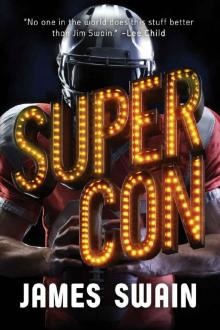 Super Con
Super Con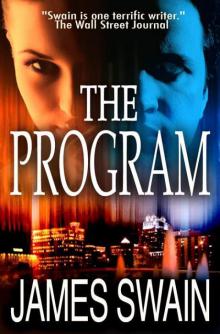 The Program
The Program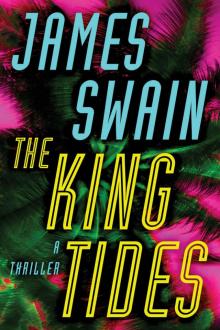 The King Tides (Lancaster & Daniels Book 1)
The King Tides (Lancaster & Daniels Book 1)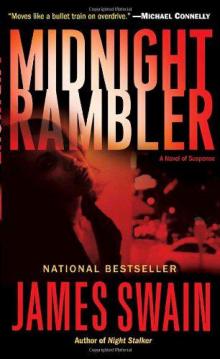 Midnight Rambler
Midnight Rambler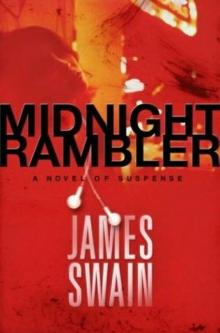 Midnight Rambler jc-1
Midnight Rambler jc-1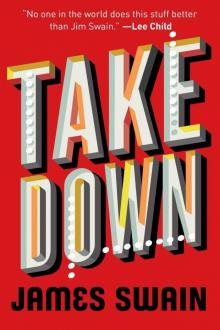 Take Down
Take Down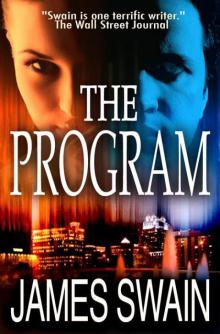 The Program (Jack Carpenter series)
The Program (Jack Carpenter series) Dark Magic
Dark Magic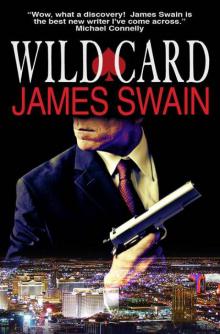 Wild Card (Tony Valentine Series)
Wild Card (Tony Valentine Series)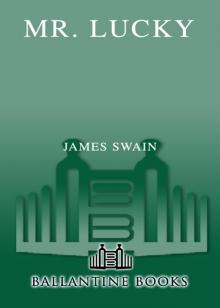 Mr. Lucky
Mr. Lucky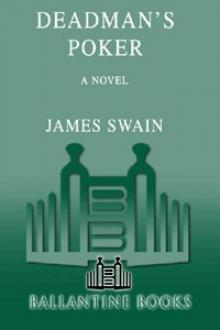 Deadman's Poker: A Novel (Tony Valentine)
Deadman's Poker: A Novel (Tony Valentine)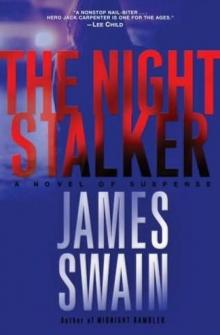 The Night Stalker jc-2
The Night Stalker jc-2 Loaded Dice tv-4
Loaded Dice tv-4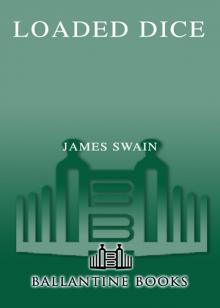 Loaded Dice
Loaded Dice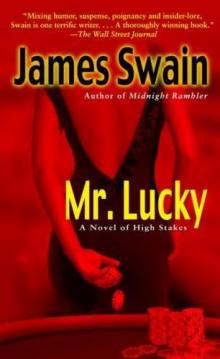 Mr. Lucky tv-5
Mr. Lucky tv-5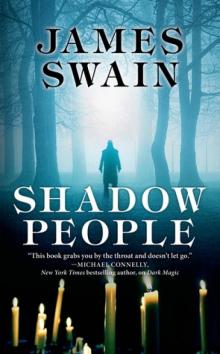 Shadow People
Shadow People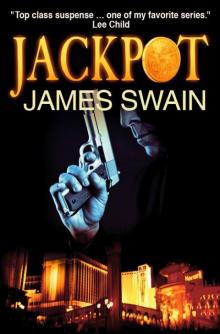 Jackpot tv-8
Jackpot tv-8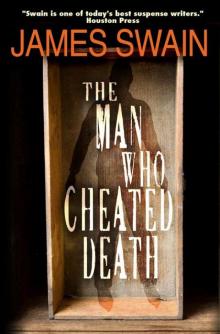 The Man Who Cheated Death (Vincent Hardare)
The Man Who Cheated Death (Vincent Hardare)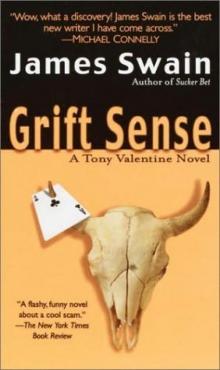 Gift sense tv-1
Gift sense tv-1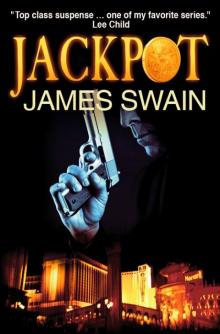 Jackpot (Tony Valentine series)
Jackpot (Tony Valentine series)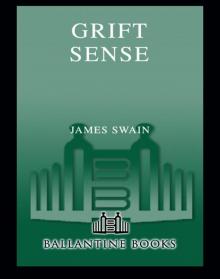 Grift Sense
Grift Sense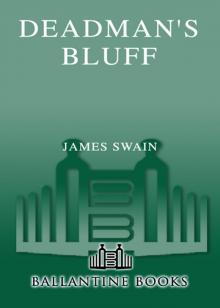 Deadman's Bluff
Deadman's Bluff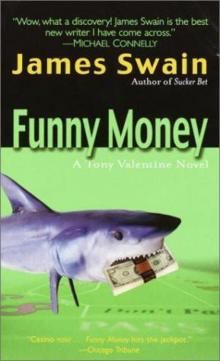 Funny Money tv-2
Funny Money tv-2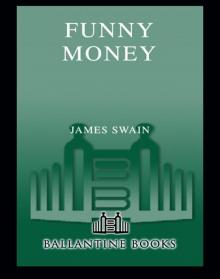 Funny Money
Funny Money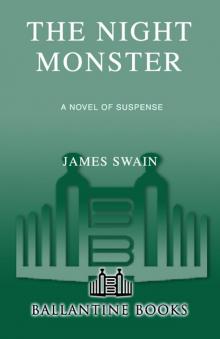 The Night Monster
The Night Monster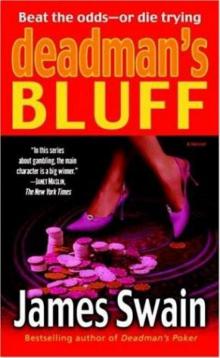 Deadman's Bluff tv-7
Deadman's Bluff tv-7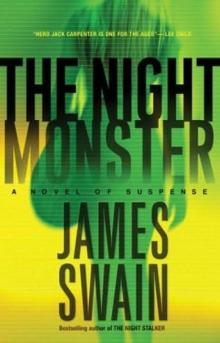 The Night Monster jc-3
The Night Monster jc-3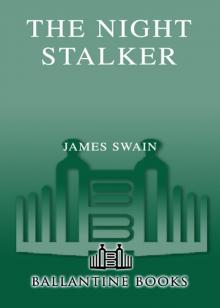 The Night Stalker
The Night Stalker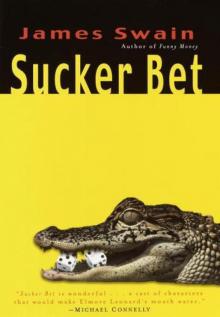 Sucker Bet tv-3
Sucker Bet tv-3